Who says AI can’t be funny?
System Shock review
Things don’t work out for either of you.
The System Shock remake begins in much the same way as 1994’s original game.
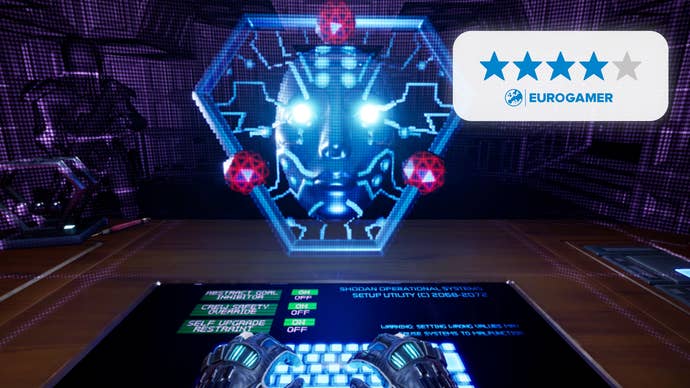
Exactly the same events take place, but they’ve been rejigged.
The opening cutscene to the original System Shock has this noisy, head-bopping beat playing in the background.
The retro animation was kind of surreal, almost like it was straight out of a fever dream.

The remake blunts some of that energy in exchange for something more palatable.
I’m focusing on the introduction because I think it’s emblematic of the entire remake.
The overall structure here is the same, though.
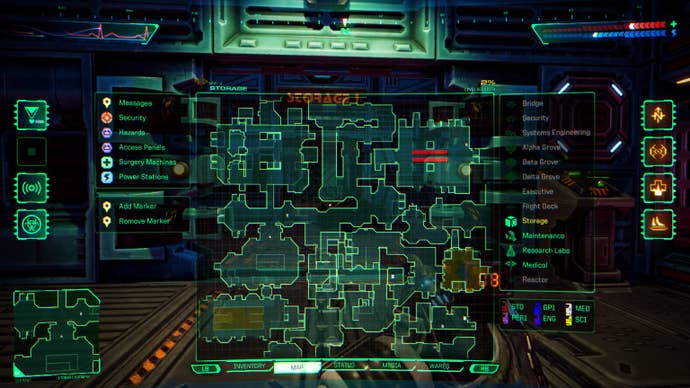
Emphasis on the plural, SHODAN’s a crafty one.
You’re slowly unravelling and learning about these knotted environments as you go.
The first change that’s immediately noticeable is, of course, how the Citadel looks this time around.
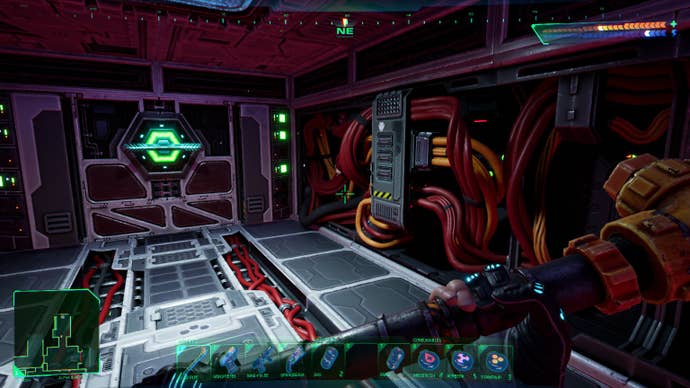
Or rather how it feels.
System Shock remake’s environments have a decidedly darker, scarier look than they did in the original.
Some walls still have a few blocky pixelated textures, recapturing that retro charm.
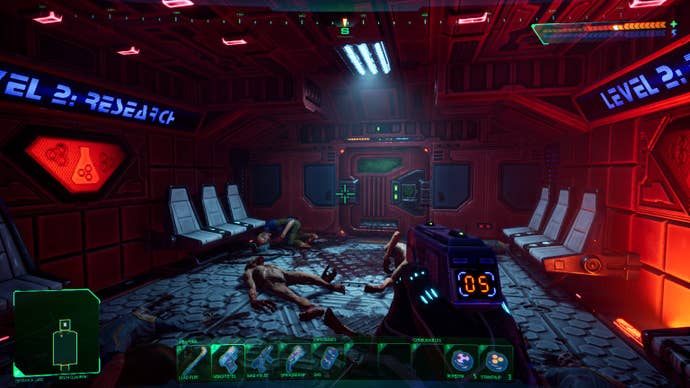
So even when the remake isn’t striving for realism, it still looks damn cool.
Sound effects largely help with this as well.
My inventory was usually lacking in either ammo, health-restoring items, or grenades, but never all three.

So, as an immersive sim, there’s normally a scrappy way out of difficult situations.
Running low on ammo?
Just how I like my horror.

Those im-sim-isms do come out to play in the way you discover and chart the maze-like world, happily.
Seriously, a complete map of any level resembles what I imagine Area 51 floor plans look like.
That freedom leads to plenty of satisfying a-ha moments.
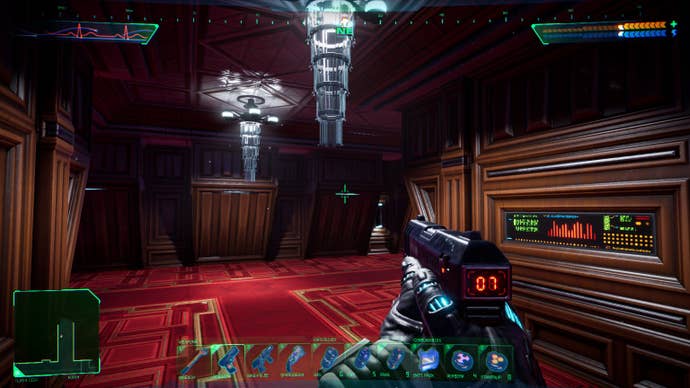
Or maybe you want to prioritise unlocking the level’s respawn point for yourself.
Or perhaps you want to find a crawlspace to side-step a precise enemy completely.
Oh, and cyberspace is back.

Now, they’re neon-tinged abstract areas where you shoot at colourful angry faces.
Cyberspace is odd and helps this remake retain some of that weirdness from the original.
The AI literally is the whole game.
System Shock leans into this horror, hard.
The maniacal AI is always there.
And, oh boy, the voice.
It cracks and contorts in genuinely unsettling ways.
Weird static effects sometimes make it sound like it’s crying, or someone else is screaming.
Inflections simulate curiousity, small moments of joy, something vaguely human.
Quickly followed by casually ultraviolent threats.
And every ugly part of this station is a reminder of the greed needed to create something so evil.
SHODAN is what makes parts of this game truly special, even with some warts.
Thankfully, the original’s impenetrable Excel sheet menus are gone.